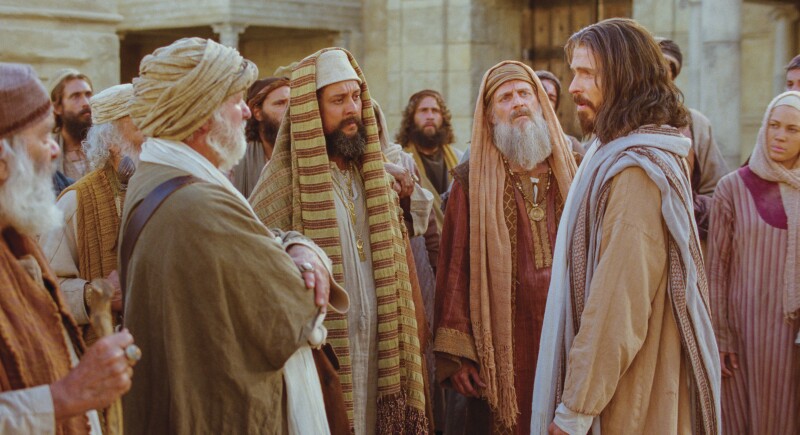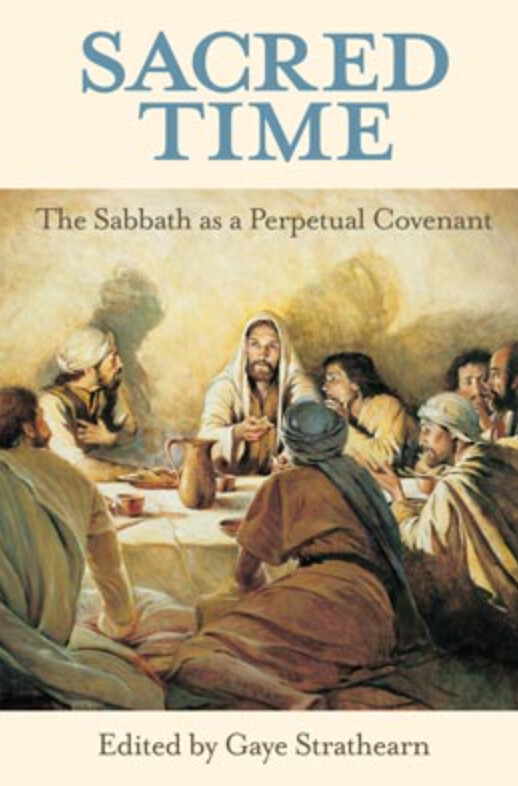Brigham Young University professor and Latter-day Saint scholar Gaye Strathearn recently worked to compile a series of essays about the Sabbath Day as a covenant. As she explained on this week’s All In podcast, the book began when she was led to ponder Sabbath controversies in the New Testament and specifically why the Pharisees were not “the bad guys” but instead, may have been a lot more like us than we imagine.
“I have a lot of sympathy for the Pharisees and other Jews because … already in their day the Sabbath command was already very ancient. We think it’s ancient compared to us, but it was over 1,000 years old by the time we get to that late Second Temple period,” she explains. “The world had changed since the time of Moses. They were living under occupation by other groups, [and] they’d had an experience that being a Jew or living your religion was outlawed with a penalty of death.”
But the Pharisees also recognized that their Sabbath day observance was a sign and a covenant. Likewise, Strathearn explains that we are left to navigate how we observe the Sabbath in our modern world without it becoming a list of what to do and what not to do. Instead, she believes the Sabbath is an opportunity to discover greater joy.
Listen to the interview with Gaye Strathearn in the player below or by clicking here. You can also read a full transcript here.
The following excerpt has been edited for clarity.
Morgan Jones Pearson: You mentioned that President Nelson has talked about sacred space, and, in the not-so-distant past, the Church really stressed and placed this specific focus on “His Day,” and giving time to God on that day of the week. Why do you think that this is something that church leaders are focused on and making a point to stress amongst us as members of the Church? I will note, you point out that the Deseret News poll did show that Church members seem more likely to observe the Sabbath. But obviously, there’s still a reason that we can do better.
Gaye Strathearn: Yeah, we can. Well, I think that this is all part of President Nelson asking us to do things in a higher and holier way. And so the Sabbath day, I think, at various times, all generations have got caught up with as you mentioned, the “thou shalt not’s.” On the Sabbath, you don’t do this, you don’t do this, you don’t do this. One of the things that I hope that readers take away from this volume is not just the “thou shalt not’s,” but what should we be doing on the Sabbath? What are the positive activities, not just focusing on the negative things. And I love President Nelson, again, has talked about quoting Isaiah, and talking about the Sabbath day being a joy to us, right. And I think that’s really something for us to focus on. Again, when I was in Israel, one of the things that I loved to do was to take the students on Friday night down to the Western Wall, and see how the people there celebrated the coming of the Sabbath. And there was dancing and singing. And it was just a joyful noise and the students loved it. They were welcomed in to sing and dance with everybody. And without fail after we’d go and experience that I’d have someone go, Whoa, I’ve never thought about the Sabbath this way. Right? That it’s something that we look forward to, and we celebrate, and it is joyful to us.
And I think there could be something in us as Latter-day Saints and as President Nelson encouraged us to see the joy that comes as we take time to spend and focus time on God and our relationship with Him, this vertical relationship that is so important to us. I’ve thought about this a few times. But thinking about it, the passage in Psalms, I think it’s 46 and Doctrine and Covenants 101, that talks about, “Be still and know that I am God.” And the Sabbath is an opportunity to walk away from the hustle and bustle of the world if we allow it so that we have some time where it’s maybe quiet enough that that we can hear the promptings of the still small voice in our lives. And sometimes that happens on the Sabbath, but also sometimes that happens in preparation for the Sabbath. Sometimes the the time of preparing a talk or a lesson to do on the Sabbath, they have been some of the richest experiences in my life, because I turn off the radio, I turn off the TV, I just sit there with prayer. In my heart, I have the scriptures, I’m thinking about the things of eternity. And in those times, that’s when God speaks to me personally, that’s when I feel His spirit. That’s whenI feel connected to Him. And I wouldn’t give that up for the world except that, like gravity, that pull of the world is constantly at me, I’ve got to be intentional in taking times to be still to notice and experience God. But there’s the other side of that is also is because my mother used to say that no way is the Sabbath day a day of rest, right? It’s the busiest day of the week. And in a small branch, that’s often the case.
I’ve thought about this also with another experience I had that has really just reverberated in my soul. So a number of years ago, I was called to be a stake Young Women’s president. And that just came out of left field for me. And I remember my first Sunday when that happened. I left home I think at 8:00 am and I didn’t get home until about 9:30 that night, there was ward conferences, there was more than one church attendance, there was going to a ward Young Women’s presidency meeting. And then there was a fireside at that night that it was a last minute when you teach a class kind of thing, right. And so I was on the go all day, and I came home, and I was exhausted. But it was a good feeling of exhaustion. But I just decided it was nighttime. And I decided to take my dog for a walk. And we were just walking in the dark. And all of a sudden, this feeling enveloped my entire being. And I felt the love of God. And it caused me to express out loud, “I love this gospel, I love being a part of it. I love being even in this small way, being invited to be an instrument in His hands.” And I, I spoke this out, like who’s hearing me, it’s my dog, he didn’t care. But really, it was my pouring out of gratitude to God because on that day, I wasn’t still in the sense of doing nothing. But I was still seeking still in terms of seeking the rest of God, the opportunity to have this connection with Him. And those things don’t happen to me every Sunday, not even close. But there are times when they do happen. They just reverberate in my soul. And I think that that’s what God wants and hopes that we will experience on the Sabbath day, both as as individuals, as family, and collectively as a community, that we’re open and still enough to hear what He wants to say to us.
Morgan Jones Pearson: I love that so much. It reminds me of the hymn, “Take Time to Be Holy.” And I think just recognizing that there are things that we stand to gain from this. It’s not just a checklist or you know, a stringent list of things that we can or can't do. But there are blessings to be had. You quote Jonathan Edwards in the book who said, “The Sabbath day is an accepted time, a day of salvation, a time wherein God especially loves to be sought and loves to be found.”


